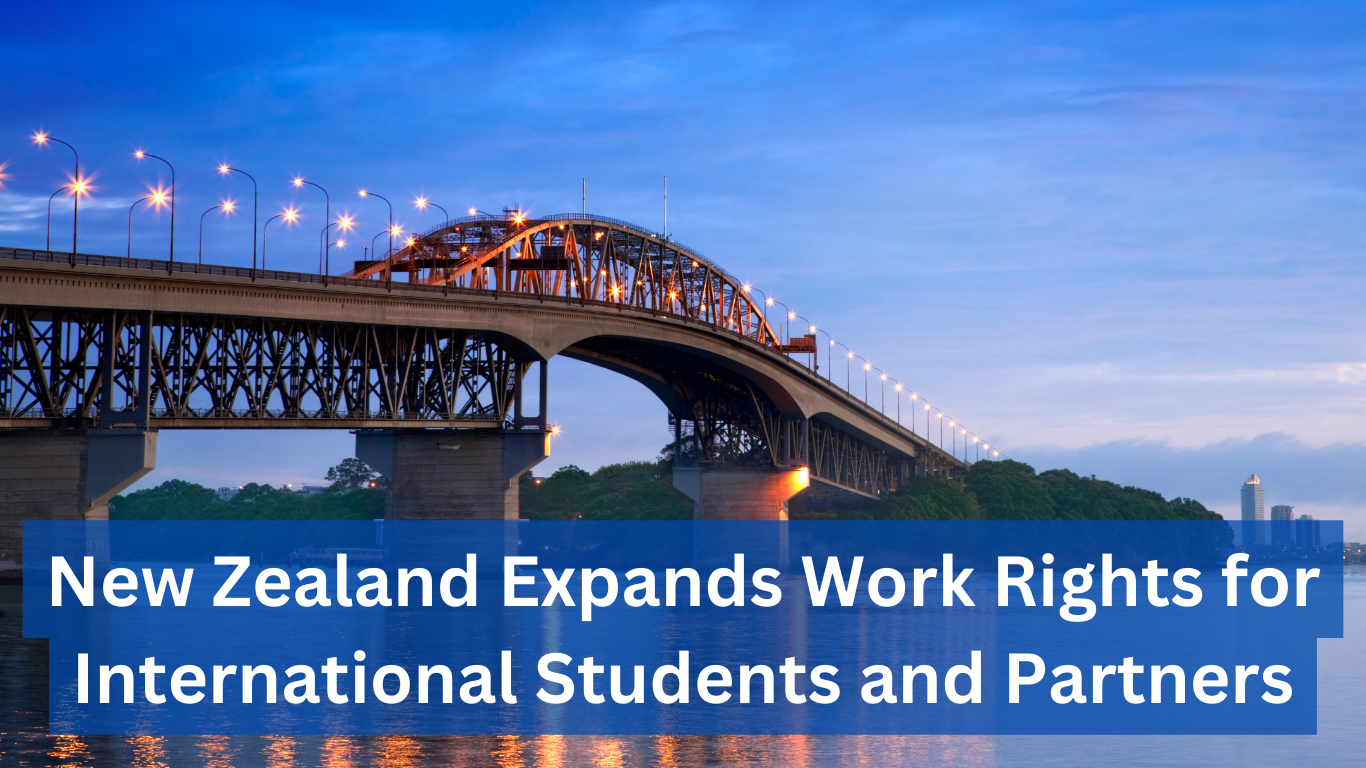
The landscape of overseas education is evolving rapidly, driven by technological advancements, changing global dynamics, and shifting student preferences. Understanding these emerging trends is crucial for students, educators, and policymakers to navigate the future of international education effectively.
Increased Accessibility through Scholarships
Scholarships have become a vital component in making education abroad more accessible. Various types of scholarships, including merit-based, need-based, and country-specific grants, are now available to a broader range of students. This increased accessibility has significantly impacted international student mobility, particularly in countries like the UK, Australia, and the USA.
Types of Scholarships Available
Scholarships range from government-funded programs, such as the Fulbright Scholarship in the USA, to university-specific awards like the Chevening Scholarships in the UK. These financial aids are designed to attract talented students from diverse backgrounds, fostering a more inclusive educational environment.
Impact on International Students
By reducing the financial burden, scholarships enable students from various economic backgrounds to pursue their dreams of studying abroad. This democratization of education has led to a more diverse international student body, enriching the cultural experience for everyone involved.
Digital Transformation in Education
The advent of digital technology has revolutionized education, particularly for international students. Online learning platforms, virtual reality (VR), and artificial intelligence (AI) are transforming traditional educational models, making it easier for students to access quality education from anywhere in the world.
Online Learning Platforms
Platforms like Coursera and edX offer courses from top universities, allowing students to learn at their own pace. These platforms have expanded access to education, enabling students to acquire new skills and knowledge without the need to travel.
Virtual Reality and AI in Education
VR and AI technologies are creating immersive learning experiences. Virtual campus tours and AI-driven tutoring systems provide students with personalized learning experiences, enhancing their understanding and engagement with the material.
Changing Visa Policies
Visa policies in popular study destinations have seen significant changes in recent years, affecting international student mobility. Countries like the USA, UK, and Australia have implemented new regulations to attract more students while ensuring national security.
Recent Changes in Visa Policies
The UK introduced the Graduate Route visa, allowing international students to stay and work for up to two years after graduation. Similarly, Australia’s post-study work visa policies have been extended, providing graduates with more opportunities to gain work experience.
Impact on International Student Mobility
These changes have made it more attractive for students to study abroad, knowing they have the opportunity to gain valuable work experience post-graduation. This has led to an increase in applications and a more competitive environment for higher education institutions.
Emphasis on Employability
There is a growing emphasis on employability within overseas education programs. Universities are integrating work opportunities into their study programs to enhance students’ career prospects.
Integration of Work Opportunities with Study Programs
Many institutions now offer co-op programs, internships, and industry placements as part of their curriculum. This hands-on experience is invaluable, helping students to build professional networks and gain practical skills.
Popular Countries Offering Work-Study Options
Countries like Germany, Canada, and the Netherlands are known for their strong emphasis on work-study programs. These opportunities make these destinations particularly attractive to international students looking to gain work experience while studying.
Focus on Mental Health and Wellbeing
The mental health and wellbeing of international students have become a priority for universities worldwide. Institutions are implementing support systems to help students navigate the challenges of studying abroad.
Support Systems for International Students
Universities are offering counseling services, mental health workshops, and peer support groups to assist students. These initiatives aim to create a supportive environment where students can thrive academically and personally.
Initiatives by Universities and Governments
Governments and universities are collaborating to provide comprehensive support systems. For instance, Australia’s government has funded mental health programs specifically designed for international students, addressing their unique challenges and needs.
Rise of Multidisciplinary Courses
The demand for multidisciplinary courses is on the rise, reflecting the need for diverse skill sets in the modern workforce. These programs combine different fields of study, offering students a broader perspective and a competitive edge.
Popular Multidisciplinary Courses
Courses such as Environmental Science and Business, Data Science and Psychology, and Bioinformatics are gaining popularity. These programs equip students with a wide range of skills, making them more adaptable in the job market.
Benefits for Students and Future Careers
Multidisciplinary courses prepare students for a variety of career paths, enhancing their employability and versatility. This approach to education encourages critical thinking and problem-solving, essential skills in any profession.
Growth in Non-traditional Study Destinations
Non-traditional study destinations are becoming more popular as students seek unique experiences and opportunities. Countries in Asia, Latin America, and Eastern Europe are emerging as attractive alternatives to traditional destinations.
Emerging Countries for Studying Abroad
Countries like Japan, South Korea, and Poland are attracting more international students due to their high-quality education systems and vibrant cultures. These destinations offer a distinct experience compared to traditional Western countries.
Reasons Behind the Shift
The shift towards non-traditional destinations is driven by factors such as lower tuition fees, diverse cultural experiences, and strong academic programs. Students are increasingly looking for affordable and enriching educational opportunities.
Sustainability in Education
Sustainability is becoming a key focus in higher education, with universities adopting green practices and promoting environmental awareness among students.
Green Campuses and Sustainable Practices
Many institutions are implementing eco-friendly initiatives, such as using renewable energy, reducing waste, and promoting sustainable transportation. Green campuses are becoming a major selling point for environmentally-conscious students.
Importance for International Students
For international students, attending a university that prioritizes sustainability is increasingly important. It reflects their values and enhances their educational experience by integrating environmental consciousness into their studies.
Increasing Collaboration between Institutions
Collaboration between universities is on the rise, with institutions partnering to offer joint degrees, exchange programs, and research initiatives.
Joint Degrees and Exchange Programs
Joint degrees allow students to study at multiple institutions, gaining diverse perspectives and expertise. Exchange programs facilitate cultural exchange and provide students with unique educational experiences.
Benefits for Students and Universities
These collaborations enhance the quality of education and provide students with broader learning opportunities. Universities benefit from shared resources and expertise, leading to innovative research and teaching methods.
The Role of Technology in the Application Process
Technology is streamlining the application process for international students, making it more efficient and accessible.
Use of AI and Blockchain in Admissions
AI is being used to match students with suitable programs, while blockchain technology ensures secure and transparent record-keeping. These advancements simplify the application process and reduce administrative burdens.
Streamlining the Application Process
Online application portals and digital document verification systems are making it easier for students to apply to multiple universities. This reduces the time and effort required, allowing students to focus on their studies.
Personalized Learning Experiences
Personalized learning is becoming a significant trend in education, with institutions using data analytics to tailor curriculums and study plans to individual needs.
Tailored Curriculums and Study Plans
Universities are using data to understand students’ learning styles and preferences, creating customized learning experiences. This approach enhances student engagement and improves academic outcomes.
Use of Data Analytics in Education
Data analytics helps institutions identify areas where students may need additional support, enabling targeted interventions. This personalized approach to education ensures that each student receives the support they need to succeed.
Language Learning and Cultural Immersion
Language skills and cultural immersion are crucial components of studying abroad, enriching students’ experiences and enhancing their employability.
Importance of Language Skills
Proficiency in multiple languages is a valuable asset in the global job market. Universities offer language courses and immersion programs to help students develop these skills.
Programs Promoting Cultural Exchange
Cultural exchange programs provide students with the opportunity to experience different cultures firsthand. These programs foster cross-cultural understanding and prepare students for global careers.
Financial Planning and Management
Effective financial planning is essential for students studying abroad. Universities and financial institutions offer resources and programs to help students manage their finances.
Budgeting for Study Abroad
Creating a budget is crucial for managing expenses while studying abroad. Students need to account for tuition fees, living expenses, travel costs, and other incidentals.
Financial Literacy Programs for Students
Financial literacy programs educate students on budgeting, saving, and managing debt. These programs equip students with the skills they need to make informed financial decisions.
Future Predictions for Overseas Education
The future of overseas education looks promising, with continued innovation and adaptation to global trends.
Expected Trends in the Next Decade
We can expect to see further integration of technology in education, increased emphasis on sustainability, and more diverse study destinations. These trends will shape the future of international education.
Potential Challenges and Opportunities
While there are challenges such as changing visa policies and economic fluctuations, there are also opportunities for growth and innovation. Institutions that adapt to these trends will thrive in the evolving educational landscape.
Conclusion
In conclusion, the overseas education industry is undergoing significant changes, driven by technological advancements, shifting student preferences, and evolving global dynamics. Understanding these trends is crucial for students, educators, and policymakers to navigate the future of international education effectively. By staying informed and adaptable, we can ensure that overseas education continues to thrive and provide valuable opportunities for students worldwide.









